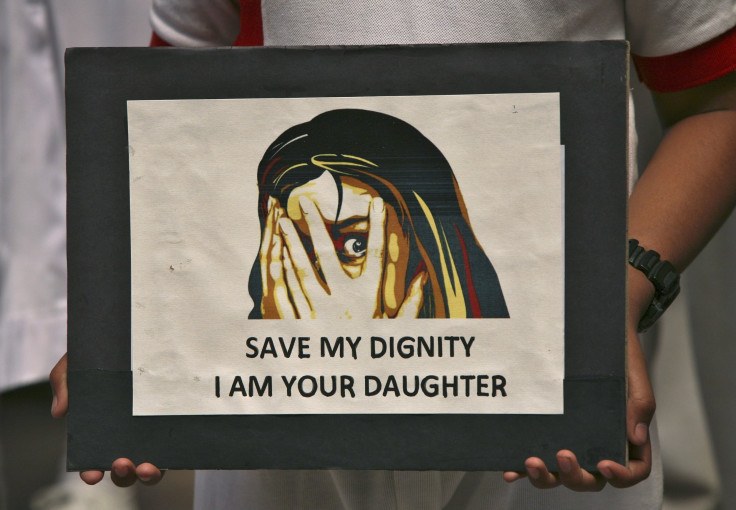New Horror In India: Gang Confesses To Five Dozen Rapes Over Past Two Years

A gang of nine men arrested for rape in the southern Indian province of Andhra Pradesh claimed that they had raped almost five dozen women over the past two years. NDTV reported that the men told police in the city of Chittoor that they had sexually assaulted 59 women and girls. However, a senior local investigative policeman named Y. Harinath Reddy, said that only sixteen of these alleged cases have been registered with authorities, in the other 41 incidents, the victims never filed a complaint.
Reddy explained that this criminal gang would descend upon couples in secluded areas, rob them and rape the woman. The assailants even videotaped at least one rape and threatened the couple that if they complained to police, the video would be released to the public thereby shaming the girl. The couples targeted were usually married couples or unmarried duos who did not want their families to know about their relationships. Some of the victims were also engineering students or even sex workers.
The criminal gang was finally arrested about a week-and-a-half ago after they attacked a couple in the small town of Bangarupalem, in Chittoor district. All nine members have extensive criminal records, with four of them previously facing rape charges.
Police stated that all nine members hailed from the Salem district of Tamil Nadu, on the extreme southeastern coast of India – but they operated across Tamil Nadu, Andhra Pradesh and Karnataka. Another five of their associated are currently jailed in Karnataka on robbery charges. The Chittoor district Superintendent of Police PHD Ramakrishna further said that the gang has killed two of their former accomplices, including their ex-leader.
In addition, the gang will be probed for its links to the murder of two policemen in the Palamaneru forest area in Chittoor district almost two months ago – this is how the case of all the serial rapists actually came to light. One of the policemen, a constable Jawarhar Lal Naik who was stationed at the Palamaneru police station, reportedly went into the forest on December 1 to investigate a case involving a group of young men dragging a girl into the foliage. The constable and other home guard officer were later found dead in the same forest.
"After the murder of our constable, we formed a team,” explained P. H. D. Ramakrishna, senior police official at Chittoor. “We found a bike [license] number scribbled on the palm of the home guard. It was the number of the bike used by the killers. Later we arrested the kingpin of the gang from Tamil Nadu. He confessed to the crime, and admitted that his gang had targeted more than [50] newlywed girls for robbery and rapes. Nobody had reported these incidents out of social shame or fear. Now we are trying to identify all the other members of this gang of rapists.”
Some angry Indian bloggers have called for the death penalty to be applied to the criminal gang. “It seems like that incidents like these have become a normality,” one blogger lamented. “The future of India looks very gloomy and dark. And by the way I think that rapes are greatly under-reported. I am sure the number is way above 59.” Another declared: “These dogs deserve [the] death punishment. But wait for [two] days, they will get support from Human rights groups using clichés like due process of law has to be followed; [the] death [penalty] isn't a deterrent; [and the] accused should be given a chance to reform.”
Since the horrific gang-rape and subsequent death of at young female medical student in December 2012 galvanized a massive protest movement across India to change the society’s attitudes towards women (and brought a harsh light from global media), sexual assaults have continued relentlessly on the sub-continent.
© Copyright IBTimes 2024. All rights reserved.











